
 Flash News
Flash News
Inceneratori jashtë funksionit, përfshihet nga flakët fusha e mbetjeve në Elbasan
Accident on the Lezhë-Shëngjin axis, one injured
"Arsonist" arrested for repeatedly setting fires in Vlora (NAME)
Three cars collide in Tirana, one of them catches fire
He abused his minor daughter, this is a 36-year-old man in custody in Fier
"From small toys to big responsibilities", the story of a girl from Fier and the perspective of sociologist Marsi Simo on accelerated childhood
"Për shumë fëmijë në Shqipëri, fëmijëria nuk është vetëm lojë dhe ëndërrim. Përkundrazi, ata përballen me përgjegjësi që shpesh i detyrojnë të rriten para kohe, duke humbur momente të çmuara të pafajësisë."
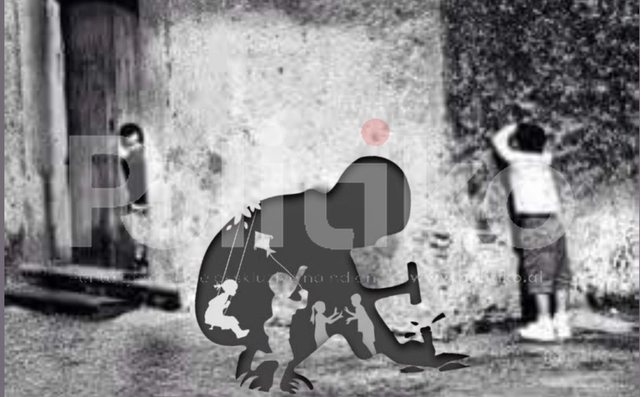
By Neta Fero
In a corner of the house, with school books in one hand and a sibling's bottle of milk in the other... This is the panorama of many Albanian children, but especially those who are the first child.
It's not that they don't want to play, make noise or dream, but time doesn't allow them. They are the eldest in the house, the ones who, without realizing it, carry a burden that is not theirs, the burden of parenting, of caring, of sacrifice.
In many Albanian families, especially those with more children, it is common for the eldest to "help".
But helping slowly turns into a duty, and duty into a responsibility that takes the child away from play and from himself. Forced to take care of others, a child gives up himself, from time, from desires, from childhood.
This phenomenon is neither new nor rare. But it remains undisputed. Often justified as “habit”, “help” or “education”, it leaves behind emotional and social consequences that appear later, in the lives of adults who still carry the burden of a childhood spent in the service of others.
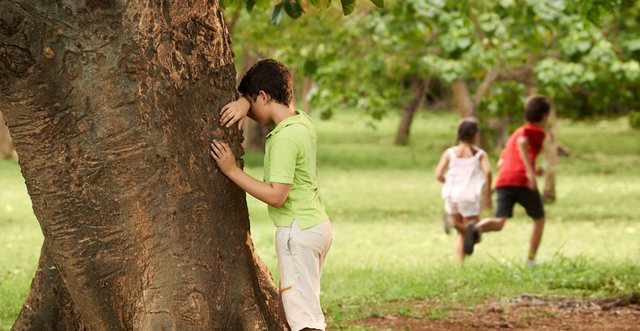
Below, we will present the story of a girl who has experienced this reality, as well as the professional perspective of sociologist Marsi Simo, who sees this phenomenon as an inherited wound that requires urgent addressing.
When childhood wears the clothes of adulthood
As we mentioned, in many Albanian families, especially those with more children, it is common for the eldest to take on responsibilities that go beyond his age.
This practice, inherited from generation to generation, arose as a necessity at a time when life was organized differently, resources were scarcer, and intergenerational coexistence was the norm.
But today, sociologists warn: this model, if overloaded, can have serious consequences on the child's emotional development.
"The child who takes on a parental role, sometimes as young as 8 or 10 years old, experiences an inner fatigue that is not appropriate for that age ," says sociology.
This trait should not be confused with natural help within the family, she emphasizes.
"It should be emphasized that we are not talking about irresponsibility on the part of children, but about tasks that do not belong to the child. Children can be encouraged to do simple chores around the house, participate in bathing the younger brother/sister, bring clothes, etc. But it cannot be claimed that the older child, even though only 8 or 10 years old, will become a parent or nanny for the younger one. Even relationships between siblings would not be healthy if these roles were predetermined according to age."
Fatmirësisht, në vitet e fundit ka një përpjekje për të ndërtuar forma më të shëndetshme të edukimit, ku fëmija nuk shihet më si një “i vogël me përgjegjësi të mëdha”, por si një individ që ka nevojë për mbështetje, zhvillim emocional dhe kohë për të luajtur, ëndërruar dhe qenë fëmijë.
“Prej brezash është trashëguar mendësia që fëmija më i madh kujdeset për të voglin. Ndër të tjera edhe forma e organizimit të jetës dikur ka krijuar këto zakone që për kohën kanë qenë ndihmuese. Megjithatë kohët e fundit po bëhet përpjekje për fomra më të shëndetshme edukimi të cilat e vendosin fëmijën në një vëmendje të atillë që të ketë mbështetjen e duhur pa i mbivendosur role që nuk i takojnë”.
Sociologia Simo shprehet se pasojat nuk ndihen vetëm në shëndetin emocional, por edhe në marrëdhëniet mes fëmijëve. Roli i përcaktuar sipas moshës, ku më i madhi “duhet” të kujdeset gjithnjë për më të vegjlit, krijon një dinamikë jo të shëndetshme.
“Një fëmijë i cili merr rolin e përkujdesit madhe edhe si prind, mbingarkohet me përgjegjësi që nuk i takojnë. Këto përgjegjësi i shtojnë atij ankthin aq sa edhe kur rritet do ndihet me të njëjtat përgjegjësi për motrat apo vëllezërit e tij më të vegjël”.
“E ndjeva çantën e rëndë të përgjegjësive, që në fëmijëri” – rrëfimi i një vajze nga Fieri
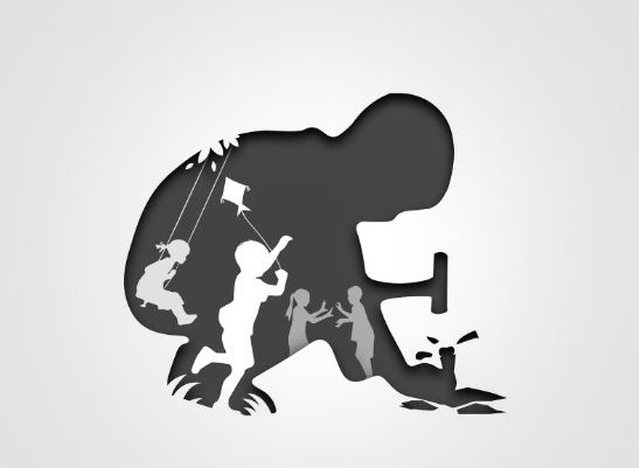
Fëmijëria e saj nuk ishte as bardhë, as e zezë. Ishte një përzierje emocionesh, përgjegjësish dhe ndjesish që nuk i takonin moshës.
G.K., një vajzë nga Fieri, rrëfen me sinqeritet si është të jesh fëmija i madh në një familje ku ndihma kthehet në detyrim dhe përgjegjësia, në pjesë të pandashme të jetës.
“Fëmijëria ime ishte një përzierje ngjyrash: kishte ditë me diell, por edhe re që më bënë të rritem më shpejt se sa ndoshta duhet. Kujtimet më sjellin fytyra të dashura, lojëra të pafundme, por edhe momente kur përgjegjësitë më shtypnin shpatullat si një çantë tepër e rëndë për një trup të vogël. Po normale që e ndjej se u rrita shumë më shpejt se të tjerët,madje në shumë drejtime.” thotë ajo.
G.K. tregon se që në moshë të vogël u përball me mungesa, ndarje dhe sakrifica – gjëra që zakonisht një fëmijë nuk duhet t’i kuptojë, e jo më t’i menaxhojë.
“Që në moshë të vogël m’u desh të kuptoja gjëra që fëmijët zakonisht nuk i kuptojnë: mungesa, sakrifica, ndarje, durim. Më duhej të kujdesesha për të tjerët, ndonjëherë edhe më shumë se sa për veten. Kjo më bëri më të fortë, por ndonjëherë më mungon ajo ndjesia e pafajësisë, e mosnjohjes së dhembjes që duhet ta ketë një fëmijë.”
Ajo ishte e dashur dhe e përkëdhelur nga familja, por me lindjen e vëllezërve të vegjël, përkëdheljet u zëvendësuan me detyra të heshtura. Dëshirat e saj u shtynë mënjanë për t’iu dhënë hapësirë atyre të më të vegjlit.
" Being the eldest child, the love I received was greater, it was a sincere, beautiful and incomparable caress. The difficulty was at the time of the brothers later because I had to think, I had to take care, I had to withdraw from my desires to fulfill the desires of the little one, " he says with a calmness that carries much more than words.
However, she does not see this experience as a burden. On the contrary, she accepts it as the foundation of her formation.
" This experience has definitely helped me in shaping my personality, my strong character, and my premature growth in responsibilities as a woman. There is a difference between being the eldest and being the youngest of the children, as the youngest is always predisposed to having their wishes, whims, and everything fulfilled, while the eldest carries heavy words, judgments, responsibilities, etc. on his shoulders, but these make you stronger in the face of the challenges that life will bring you down the road."
Would he like another, easier path? No.
GK doesn't want to change her childhood, but she wants her children of tomorrow not to face the same deprivations:
" No, I wouldn't have changed my childhood in any way, because I am very happy with how I have developed into a woman today who, despite the difficulties, knows how to manage work, joys, and problems in life. Thanks to the many difficulties, I carry a selfless love for my family, a love that transcends boundaries and puts nothing before their happiness."
This experience will affect me in a wonderful way because as a result of the shortcomings of my childhood, my children will be filled, the missing love and the missing respect will be passed on to my children, everything bad will be prevented by me as a result of past experiences. In short, difficulties grow you in every direction and improve the being you represent."
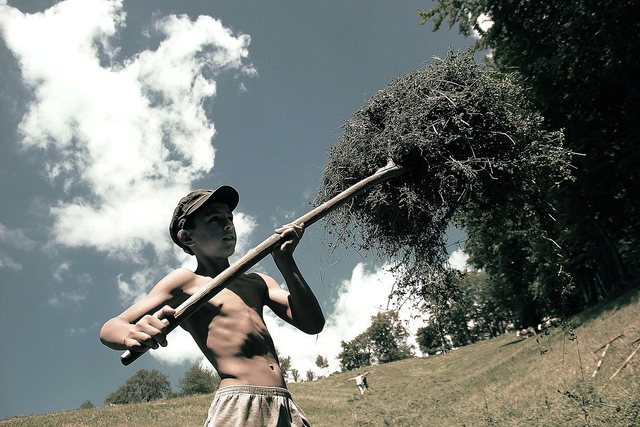
Premature responsibilities are a reality for many Albanian children, who are forced to grow up prematurely, leaving behind their toys and dreams. But as stories like GK's show, even in the greatest challenges one can find strength, and from hardships one learns unconditional love.
Sociologists remind us that childhood should be a safe space for emotional development, play, and dreaming, not a burden of responsibilities that don't belong to them.
So it's time to refocus attention on what children really need: support, well-being, and time to just be... children.
Latest news


Tirana vote recount, Alimehmeti: CEC defended manipulation
2025-07-01 18:15:05

Left Flamurtari, striker signs with another Albanian club
2025-07-01 17:43:14
Accident on the Lezhë-Shëngjin axis, one injured
2025-07-01 17:19:35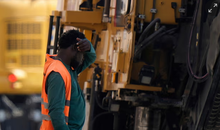
June temperature records, Italy limits outdoor work
2025-07-01 17:03:15

Meet Kozeta Miliku, named one of the top five scientists in Canada
2025-07-01 16:32:12
"Arsonist" arrested for repeatedly setting fires in Vlora (NAME)
2025-07-01 16:29:45

The ecological integrity of the Vjosa River risks remaining on paper
2025-07-01 16:09:40
Heat Headache/ Causes, Symptoms and Measures You Should Take
2025-07-01 16:01:13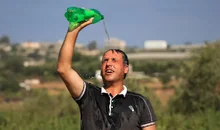
UN: The world must learn to live with heat waves
2025-07-01 15:54:50

Three cars collide in Tirana, one of them catches fire
2025-07-01 15:38:16

Shehu: Whoever doesn't want Berisha, doesn't want the opposition 'war'!
2025-07-01 15:19:20
Berisha requests the OSCE Assembly: Help my nation vote freely
2025-07-01 15:11:46
Be careful with medications: Some of them can harm your sex life
2025-07-01 15:00:32

'Golden Bullet'/ Lawyers leave the courtroom, Altin Ndoc's trial postponed again
2025-07-01 14:44:52
EU changes leadership, Kosovo in a number of places
2025-07-01 14:40:01
Should we drink a lot of water? Experts are surprised: You risk hyponatremia
2025-07-01 14:30:20
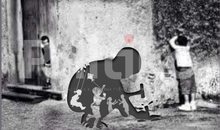


Lëpusha beyond Rama's postcards: A village that is being silently abandoned
2025-07-01 13:41:56
Scorching temperatures in France close the Eiffel Tower
2025-07-01 13:29:35
Media: China, Iran and North Korea, a threat to European security
2025-07-01 13:20:12
Albania drops in global index: Less calm, more insecure
2025-07-01 13:09:35
Road collapses, 5 villages in Martanesh risk being isolated
2025-07-01 13:03:04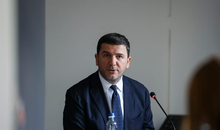

Këlliçi: Opposition action to be decided in September
2025-07-01 12:48:49
Four tips for coping with the heat wave
2025-07-01 12:38:53
Car hits pedestrian on Transbalkan road
2025-07-01 12:27:09
Authors of 9 robberies, Erjon Sopoti and Abdullah Zyberi arrested
2025-07-01 12:15:56

He abused his minor daughter, this is a 36-year-old man in custody in Fier
2025-07-01 11:50:34
The constitution of the Kosovo Assembly fails for the 40th time
2025-07-01 11:40:08



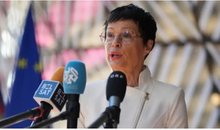
EU confirms support for the Western Balkans
2025-07-01 10:50:45
Serious in Fier! Father sexually abuses his minor daughter
2025-07-01 10:32:33
One year since the passing of the colossus of Albanian literature, Ismail Kadare
2025-07-01 10:25:26


They supplied the 'spaçators' with drugs, two young men are arrested in Tirana
2025-07-01 09:54:09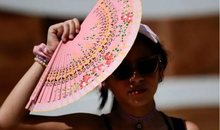
Europe is "scorching", how dangerous are high temperatures?
2025-07-01 09:48:56


Nigel Farage in Albania: but why?
2025-07-01 09:13:12
Xama: The "Partizani" dossier is quite weak and without facts!
2025-07-01 09:04:47

Foreign exchange, the rate at which foreign currencies are sold and bought
2025-07-01 08:35:39
Fabricators again warn of factory closures and job cuts
2025-07-01 08:21:30
Horoscope, what do the stars have in store for you today?
2025-07-01 08:08:59
Scorching hot, temperatures reaching 40°C
2025-07-01 07:57:12
Morning Post/ In 2 lines: What mattered yesterday in Albania
2025-07-01 07:42:59
Recount after May 11, Braho: I had no expectations for massive vote trafficking
2025-06-30 22:54:18

Second hearing on the protected areas law, Zhupa: Unconstitutional and dangerous
2025-06-30 22:18:46



Israel-Iran conflict, Bushati: Albanians should be concerned
2025-06-30 21:32:42

Fuga: Journalism in Albania today in severe crisis
2025-06-30 21:07:11
"There is no room for panic"/ Moore: Serbia does not dare to attack Kosovo!
2025-06-30 20:49:53

Temperatures above 40 degrees, France closes nuclear plants and schools
2025-06-30 20:28:42
Lavrov: NATO is risking self-destruction with new military budget
2025-06-30 20:13:54
Turkey against the "Bektashi state" in Albania: Give up this idea!
2025-06-30 20:03:24

Accused of sexual abuse, producer Diddy awaits court decision
2025-06-30 19:40:44



Kurti and Vučić "face off" tomorrow in Skopje
2025-06-30 18:44:12
Tourism: new season, old problems
2025-06-30 18:27:23


Construction worker dies after falling from scaffolding in Berat
2025-06-30 17:51:44




Almost free housing: East Germany against depopulation
2025-06-30 16:43:06

Hamas says nearly 60 people killed in Gaza as Trump calls for ceasefire
2025-06-30 16:14:15
Drownings on beaches/ Expert Softa: Negligence and incompetence by institutions!
2025-06-30 16:00:03


European ports are overloaded due to Trump tariffs
2025-06-30 15:30:44
The prosecution sends two Korça Municipality officials to trial
2025-06-30 15:19:54

Lezha/ Police impose 3165 administrative measures, handcuff 19 drivers
2025-06-30 14:55:04
Young people leave Albania in search of a more sustainable future
2025-06-30 14:47:52
